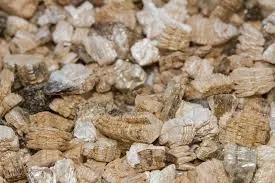Sep . 01, 2024 06:35 Back to list
pipe insulation material supplier
The Importance of Choosing the Right Pipe Insulation Material A Guide to Suppliers
When it comes to maintaining a comfortable and energy-efficient environment in residential and commercial buildings, insulation plays a crucial role. Among various types of insulation, pipe insulation is often overlooked, yet it is vital for preventing heat loss, protecting pipes from freezing, and reducing energy costs. As a result, selecting the right pipe insulation material from a reliable supplier is essential for any construction or renovation project.
Understanding Pipe Insulation
Pipe insulation is designed to wrap around pipes to minimize heat transfer. This is particularly important for plumbing lines carrying hot or cold water, as well as pipes that transport steam. Insulation helps maintain the temperature of the fluid within the pipe, reduces energy consumption, and extends the life of the plumbing system by preventing condensation and corrosion.
There are various types of insulation materials available in the market, each with its unique properties and benefits. Common materials include fiberglass, foam, rubber, and polyethylene. The choice of insulation material often depends on factors such as the type of piping, the temperature of the fluids within the pipes, and the environmental conditions of the installation area.
Key Considerations When Choosing Pipe Insulation
1. Temperature Resistance The insulation material should be able to withstand the specific temperature range of the pipes it is protecting. For example, foam insulation is generally effective for both hot and cold pipes, while rubber insulation can be used in high-temperature applications.
2. Moisture Resistance In areas prone to high humidity, selecting a moisture-resistant material is crucial to prevent mold and mildew growth. Closed-cell foam insulation is an excellent choice for such environments, as it provides superior moisture resistance compared to open-cell options.
3. Thickness and R-value The thickness of the insulation affects its R-value (a measure of thermal resistance). A higher R-value means better insulating properties. When selecting pipe insulation, it’s important to choose an appropriate thickness to meet the required energy efficiency standards.
4. Durability The insulation material should be durable enough to withstand physical stress and environmental conditions. Robust materials like rubber and fiberglass are known for their longevity and resilience.
pipe insulation material supplier

5. Cost-Effectiveness While it may be tempting to choose the cheapest option, considering the long-term benefits and energy savings is prudent. A higher initial investment in quality insulation can lead to significant savings in energy bills over time.
Finding a Reliable Supplier
Once the appropriate insulation material has been identified, the next step is to find a reliable supplier. Here are some tips for selecting the right supplier
- Reputation Look for suppliers with a strong reputation in the industry. Online reviews and recommendations from industry professionals can help gauge reliability.
- Product Range A good supplier should offer a wide range of insulation materials suited for various applications. This variety ensures that you have multiple options to consider based on your specific needs.
- Customer Support Seek suppliers who offer excellent customer service, including advice on the best products for your requirements, assistance with installation, and after-sales support.
- Competitiveness in Pricing While quality matters, it's also essential to find competitive pricing. Request quotes from multiple suppliers to ensure you are getting the best deal.
- Sustainability Practices As environmental awareness grows, many consumers prefer to work with suppliers that prioritize eco-friendly materials and practices.
In conclusion, pipe insulation is essential for energy efficiency and the protection of plumbing systems. By understanding the various insulation materials available and considering key factors in your decision-making process, you can choose a high-quality product that meets your needs. Additionally, sourcing insulation from a reliable supplier ensures that you receive the best guidance and support, ultimately leading to a successful installation.
-
Eco-Friendly Granule Covering Agent | Dust & Caking Control
NewsAug.06,2025
-
Fe-C Composite Pellets for BOF: High-Efficiency & Cost-Saving
NewsAug.05,2025
-
Premium Tundish Covering Agents Exporters | High Purity
NewsAug.04,2025
-
Fe-C Composite Pellets for BOF | Efficient & Economical
NewsAug.03,2025
-
Top Tundish Covering Agent Exporters | Premium Quality Solutions
NewsAug.02,2025
-
First Bauxite Exporters | AI-Optimized Supply
NewsAug.01,2025
